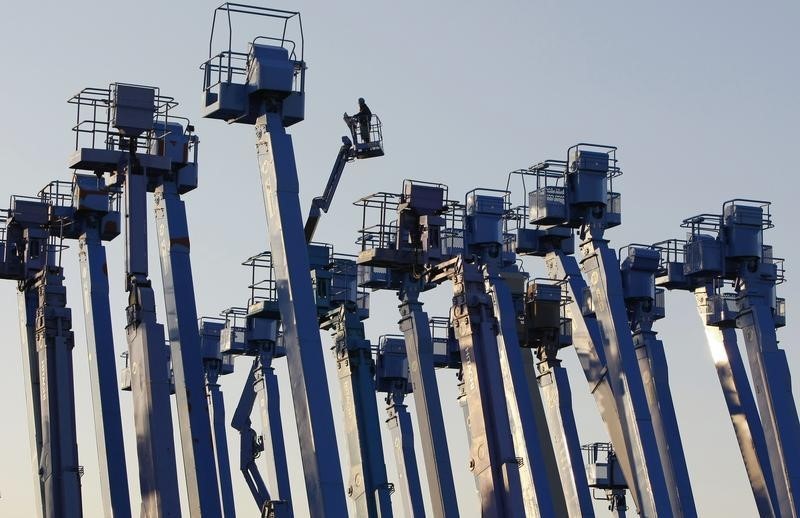By Kiyoshi Takenaka and Izumi Nakagawa
TOKYO (Reuters) - Three-quarters of Japanese companies support opening up the country to more foreign workers in low-skilled jobs to cope with a rapidly worsening labour shortage, a Reuters poll shows - a stark contrast to deep-seated government reluctance to do so.
Japan, one of the world's fastest ageing nations, is grappling with an acute lack of workers, especially in industries such as construction, farming and care for the elderly - a shortage that could hamper Prime Minister Shinzo Abe's economic revival plans.
But Abe's government, rather than taking significant steps to allow in more of the sort of foreign workers who could address those shortages, has focused on relaxing requirements for highly skilled foreigners and has promoted policies that encourage the participation of women and the elderly in the workforce.
The Reuters Corporate Survey, conducted Sept. 30-Oct. 9, showed 76 percent of Japanese firms are in favour of bringing in low-skilled foreign labour, on the presumption that the workers would be treated fairly in terms of benefits.
"In labour-intensive industries, the lack of workers has become a big bottleneck to growth," responded a corporate manager at a transport firm.
Among those in favour, 68 percent said they supported the idea to some extent, while 8 percent were very much in support. Close to a fifth said they didn't really support the idea while 5 percent were completely against it.
With one-quarter of Japan's population already over 65 years of age, the job market is tight. The unemployment rate hit an 18-year low of 3.3 percent in July and one measure of job availability has risen to levels not seen since the early 1990s.
But foreign workers accounted for only 1 percent of Japan's total labour force in 2012, government data shows.
The shortage of workers is most acute in the construction industry, leaving companies struggling to meet demand for new projects tied to the 2020 Tokyo Olympics and reconstruction work in areas in northern Japan destroyed by the 2011 earthquake and tsunami.
Topping the list of concerns for those against more low-skilled foreign labour were language and cultural issues. There were also doubts that firms would be able to lower labour costs with less-expensive foreign workers.
But written comments from those in favour showed many managers thought that taking in more low-skilled foreign labour was inevitable and it was time to debate rules and mechanisms to facilitate the change.
"If we don't legally approve foreign workers to some degree, then the number of illegal workers will only increase and there'll be a deterioration in public order," a manager at a chemicals company wrote.

The monthly survey, conducted for Reuters by Nikkei Research, polled 515 big and medium sized firms and around 260 companies answered questions on foreign workers. Corporate managers respond on condition of anonymity.